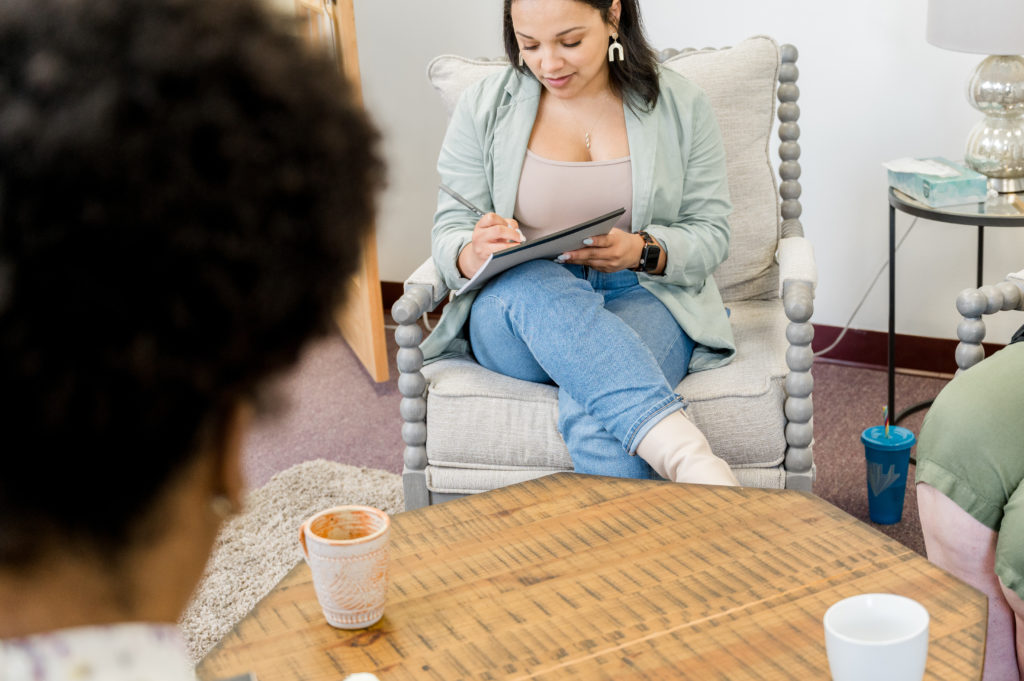
It’s Summer….. so why am I MORE anxious?
Summer conjures thoughts of long, relaxing days at the beach, slowing down, warm nights by the fire, pool parties, patio dining. We spend a good part of the winter and early spring months longing for summer. Vacations are planned and long anticipated. So, how is it possible that you’re feeling more anxious than ever?
Here are a few reasons you may be noticing an uptick in anxiety.
Transitions. Whether you’re a teacher, student, parent or completely past this point in your life, summer brings transitions. Having kids home from school changes your daily routine and home environment immensely. If you’re a teacher, being home without the structure of school lends to increased anxiety. Work routine shift in the summer to accommodate vacation schedules and you may experience a change in workflow. It can take weeks to get into a new rhythm (and we only have a limited number of weeks to enjoy the summer, right?). Bottom line? Transitions are stressful and summer is full of them.
Vacations. Ironic, right? You go on vacation to relax. How is it possible that vacations contribute to anxiety? For one, vacations are full of transitions. Your nervous system reacts to a change in routine and environment even when this change is desirable and ultimately provides the rest and time away that you need. You may notice your nervous system activating just before going on vacation and again on return, often taking a full week to get back to baseline. Take some time this summer to notice how your system feels just before and just after you go away.
Body image. Body image can be a huge challenge in the summer. Warmer weather means less clothing and of course… bathing suits. Many of our clients express having greater body dissatisfaction in the summer. Negative body image thoughts contribute to anxiety, making it harder to enjoy yourself and all that summer has to offer.
Increased social activity. Are you more social in the summer? Parties, family reunions and nicer weather lend to increased social activity. For many, social events lead to increased anxiety. This may be particularly noticeable now as things are returning to normal post-pandemic.
Limited time. Do you spend a good deal of your summer thinking about how much time you have left of it? Maybe you dwell on how you’ll spend the time. Or, how you’ve spent the time so far. Any thoughts about the future or past naturally lead to feelings of anxiety. If you have kids and they ask, “how many more days do we have left of summer?”, do you notice your own anxiety increasing? If so, read on.
Here are a few tips to manage summer anxiety.
- Track your nervous system. Notice when you feel more “activated” and get curious, without judgement. Mindful observation of your internal system helps decrease overall anxiety. Allowing the emotion to be there fully will allow it to pass more quickly.
- Be in the moment. Practice mindfulness. Intentionally bring yourself into the moment by noticing three things you see, three things you hear and three things you feel. Take a moment to slow down and follow your breath, elongating the outbreath (this helps calm your nervous system). If you find it hard to slow down your thoughts and be in the moment, consider trying a guided meditation. There are several apps that offer these: Headspace, Calm and Insight Timer are a few we use.
- Get support. Talking helps. Seek out a supportive friend, colleague or therapist to help you work through your feelings. It’s amazing how talking about your experience helps to ease anxiety. This is commonly referred to in the therapy world as “name it to tame it”.
- Set a schedule. Setting a schedule helps create consistency and our nervous system responds to this. It can feel freeing to ‘not have a routine’ in the summer so it’s understandable if creating one may bring some resistance. However, you may find setting a loose schedule around your free time allows you to enjoy it more.
- Reframe negative thoughts. When negative thoughts arise about your body, the impending end of summer, or otherwise, take a moment to intentionally reframe them. Thoughts lead to feelings. Reframing your negative thoughts lessens the likelihood they’ll lead to negative feelings like shame and anxiety. Come up with a few simple reframes for some of your common thoughts. For example, if you have a the thought “my body is so _______, I shouldn’t be wearing this bathing suit”, you could reframe it by saying “This bathing suit allows my body to enjoy this beautiful day at the beach” or “I don’t love how my body looks right now but I am comfortable and I am going to have fun”.
Do you have other ideas for managing summer anxiety? We’d love to hear them! Feel free to reply to this newsletter to let us know what works for you.
We hope you enjoy as many summer moments as you can!



